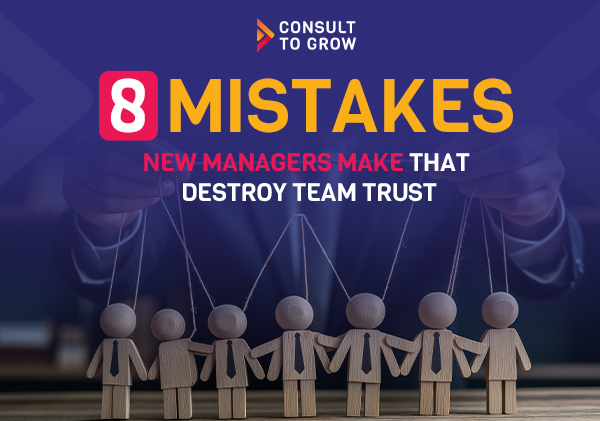
8 Mistakes New Managers Make That Destroy Team Trust
Taking on a role as a new manager is an exciting step. It brings new challenges that allow you to stretch and grow. As a

Hospitality isn’t just about serving food, making drinks, or booking rooms—it’s about people. And when management fails to prioritize people, the entire operation suffers. Poor management creates more than just stressful shifts; it leads to burnout, high turnover, and a toxic work culture. If your team is struggling, the problem often starts at the top. This requires an honest inventory of internal practices that aren’t serving your business. Sometimes the easiest path to identifying poor management practices is to examine the symptoms.
Let’s break down the most common management pitfalls in hospitality, how they damage your team, and, most importantly, how to fix them. We’ll start by naming the mismanagement practice and then dive into the symptoms it causes.
Poor management isn’t always obvious. While some bad habits are blatant—like yelling at employees or playing favorites—others are more subtle but just as damaging. Here are a few of the most common players when it comes to mismanagement of your teams:

Bad management does more that create anxiety and chaos on the floor. It has a reaching impact on your business internally. It can also affect your business reputation. Positive leadership training can lessen the impact before it happens. However, if you are already in the weeds, you’ll see warning signs. Here’s what’s at stake:

Fixing poor management isn’t just about improving the work environment—it’s about making your business more successful. Here’s how to start:
Too often, hospitality managers are promoted based on experience, not leadership ability. Your business needs to give new managers the tools to succeed with training in communication, conflict resolution, and team motivation. By doing so, you will enable them to:
Want to learn more about investing in your leaders? Read “Now Is the Time to Invest in Restaurant Managers.” If you are looking for a training program that is curated to your business and will accelerate your leadership in order to build better teams, check out our Leadership Accelerator Program.)
Great hospitality starts with great leadership. When managers prioritize their team’s well-being, employees stay longer, work harder, and create better guest experiences. The industry is challenging, but with the right management approach, you can build a workplace where both employees and your business thrive.
What’s been your biggest challenge with management in hospitality? Let’s talk in the comments!
Consult to Grow® provides various tools and services to help you improve your operational performance as you scale and grow your business. We can expertly assess your scalability, develop tactical plans, facilitate planning, and more. Ready to get started?

Taking on a role as a new manager is an exciting step. It brings new challenges that allow you to stretch and grow. As a

Trust is the foundation of strong leadership and a thriving business. If you want to lead your business with strength and integrity into a flourishing future, you need to start and end with trust.

Stepping into a leadership role can be exciting, but what if the team you inherit is a complete mess? You didn’t make the mess, but